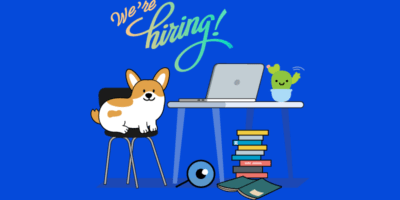Sounds like someone you’re trying to hire? We’ve got your back.
We scoured popular hiring portals like LinkedIn and Indeed for commonalities in SEO Specialist job descriptions. Then we asked 15 SEO hiring managers—both agency and client-side—to see if these responsibilities, skills and requirements resonated with them. From their answers, we created a job description template.
Without further ado, here’s the template.
[Company name] is looking for an SEO specialist that will [brief description of what they’ll be doing].Responsibilities
- Perform keyword research and competitive analysis
- Understand and implement technical SEO audits and changes
- Execute on-page optimizations
- Implement changes in content management systems (CMS)
- Manage content production by planning content calendars, managing writers (or collaborating with content writing teams), and supporting them on SEO
- Devise and execute methods to track, report, analyze and improve SEO performance
- Collaborate with SEO managers and other in-house marketing teams
- Collaborate with developers and product teams to implement necessary features and changes
- Develop new SEO tests and strategies
- Present and communicate SEO strategies and projects to clients and/or internal stakeholders
- Serve as the key SEO expert/advocate
- Keep up-to-date with latest SEO trends, strategies and algorithm changes
Requirements
- 2+ years of experience working in SEO
- Good understanding of SEO best practices
- Passion for SEO and internet marketing
- Ability to create, justify, communicate and implement SEO strategies across teams and external agencies
- Data-driven and analytical mindset
- Attention to detail
- Project management skills
Desirables
- Experience working with SEO tools including Google Search Console, Google Analytics, Ahrefs, and Screaming Frog
- Experience with and/or understanding of code (e.g., HTML, CSS, JavaScript)
- Experience with and/or understanding of other marketing channels (e.g. PPC)
- Experience working with popular CMS’ (e.g., WordPress)
- Experience with technical SEO
- Excellent writing skills
Want a template of this job description? Make a copy here.
The template is merely a starting point. It’s not gospel. Depending on whether you’re an agency or an in-house team, the particular SEO specialist you’re looking for will differ. Add or remove items from each section as you wish. If a skill from the “desirables” section is crucial in the role you’re hiring, then shift it to the “Requirements” section.
Beyond that, here are some more tips.
1. Add a brief description of your company
Don’t expect people to know what your company is about. Give a brief description of what your company does. You can add this part right at the beginning, before your description of the job.
Usually, companies include their brand’s mission statement.
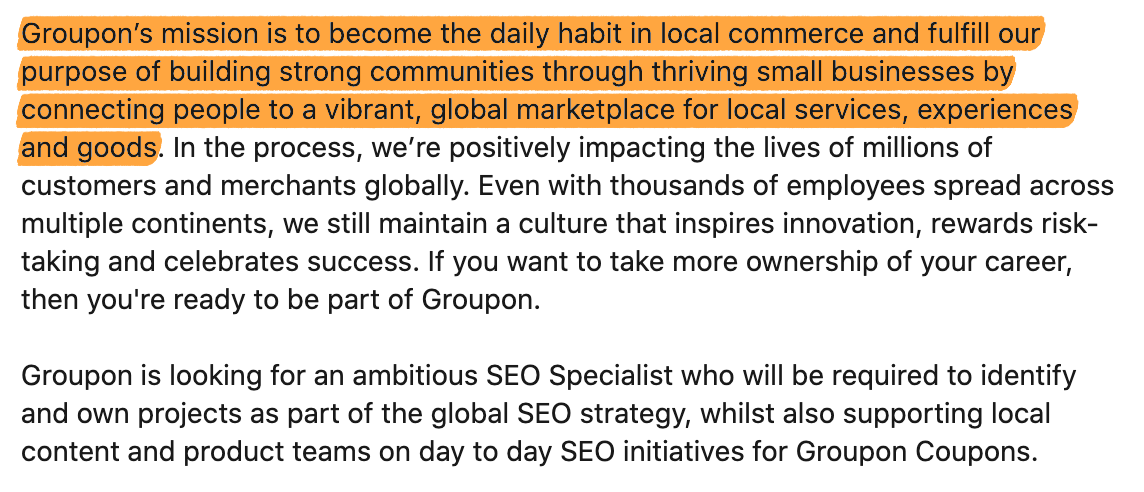
If you think your mission and vision adds value, feel free to include it. However, try to avoid the corporate jargon. KlientBoost’s job description offers a good example of how to do this well:
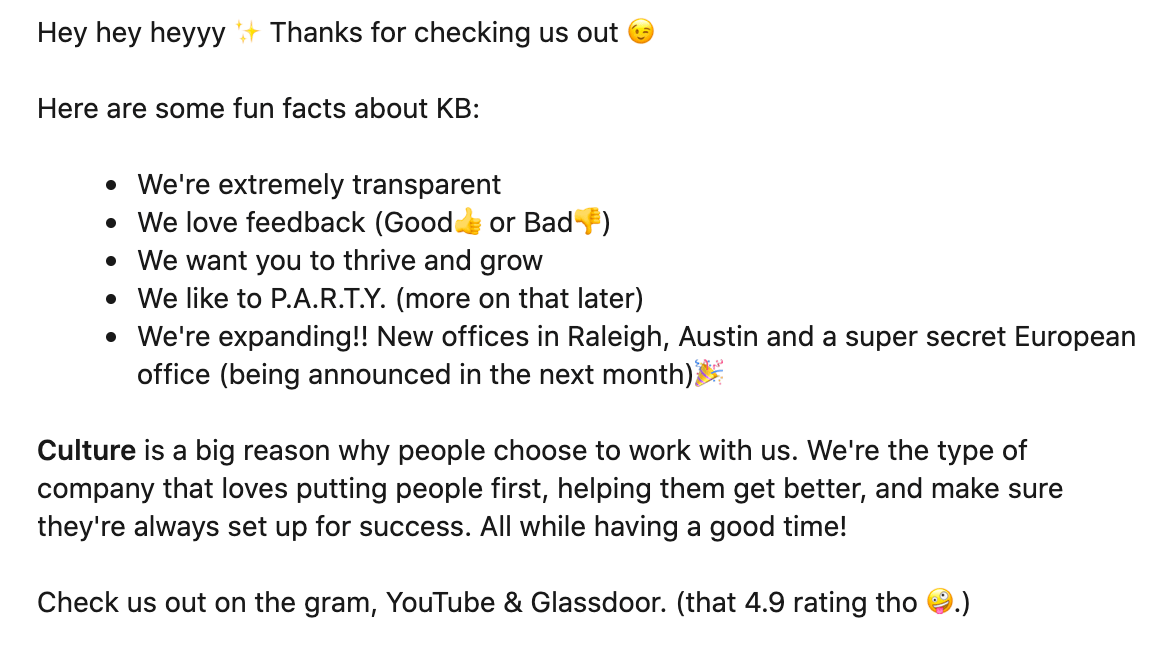
They know that new hires are concerned over the company’s culture. So, rather than an empty slogan created by C-suites in their once-a-year holiday retreat, they addressed the main concern directly.
2. Give clear instructions on how to apply
The goal of hiring is not to get as many applicants as possible. It is time consuming to have to sieve through tons of resumes.
Instead, you should focus on finding relevant and qualified people. A good way to do this is to include how you’d like them to apply. This will dissuade lazy job applicants whose only strategy is to mass mail their resumes.
For example, in our job listing, we specifically stated what we want our applicants to do.
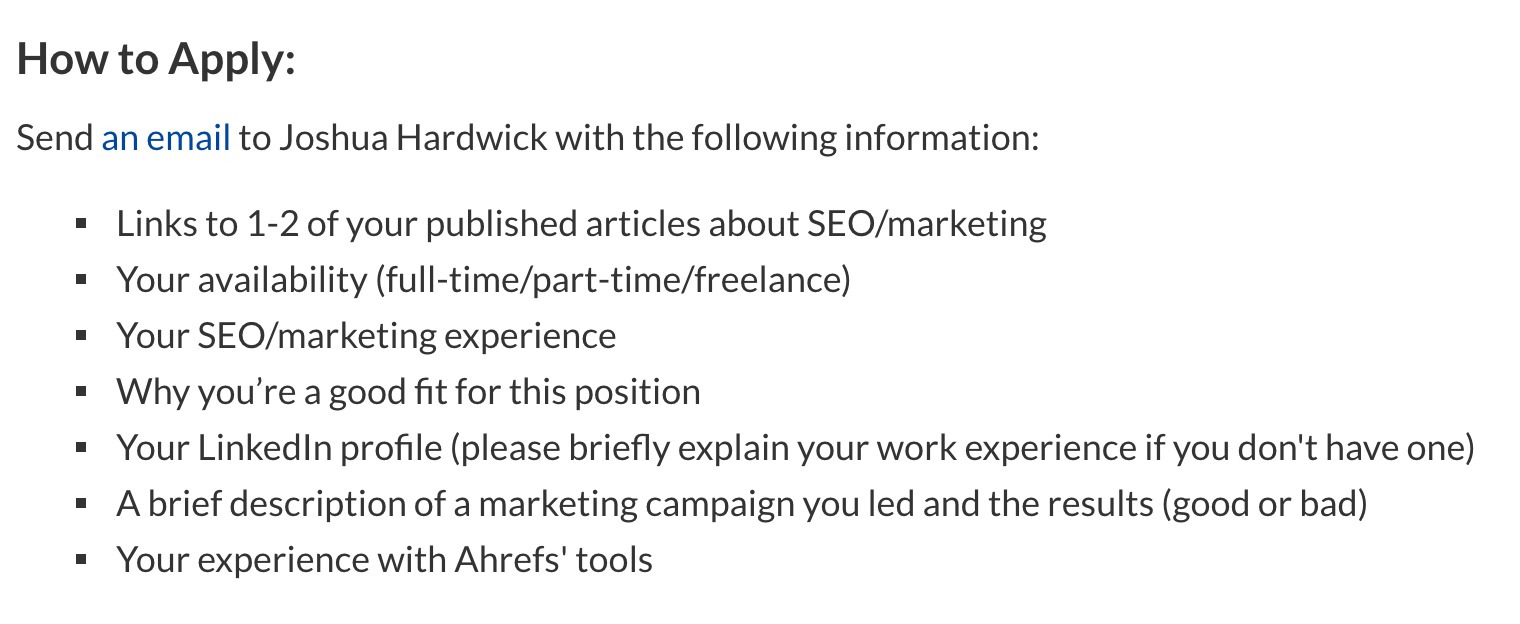
3. Give the best applicants a reason to apply
Every company wants to hire A-players. But there aren’t many of them to go around. So, you have to tell these applicants why they should choose you over other companies.
This usually means talking about salary and type of benefits your company offers. However, it’s not limited to that. You can reiterate your company’s mission, introduce the company culture, talk about time and/or location flexibility, and so on.
For example, this is how Perfect Keto does it.
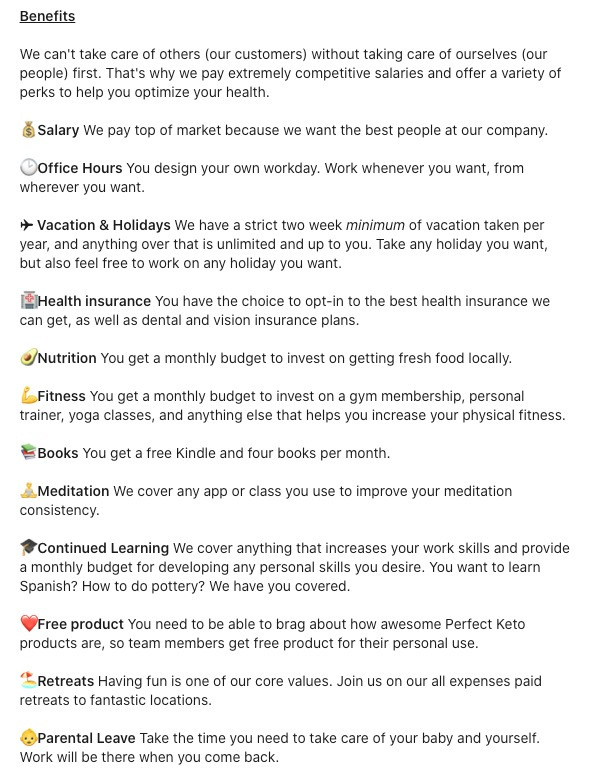
We started by looking for commonalities among SEO Specialist job descriptions on popular hiring portals. This wasn’t a scientific process by any means; we did it by eye. Then we created a survey based on those patterns and sent it to 20 SEO hiring managers. 15 replied.
The survey was split into two sections:
- Responsibilities
- Skills and requirements
Let’s take a closer look at the responses.
Responsibilities
In this section, we presented SEO hiring managers with 19 of the most common responsibilities from SEO Specialist job descriptions. Then we asked whether or not each of these would be a day-to-day responsibility for their ‘SEO Specialist’.
Here are the results.
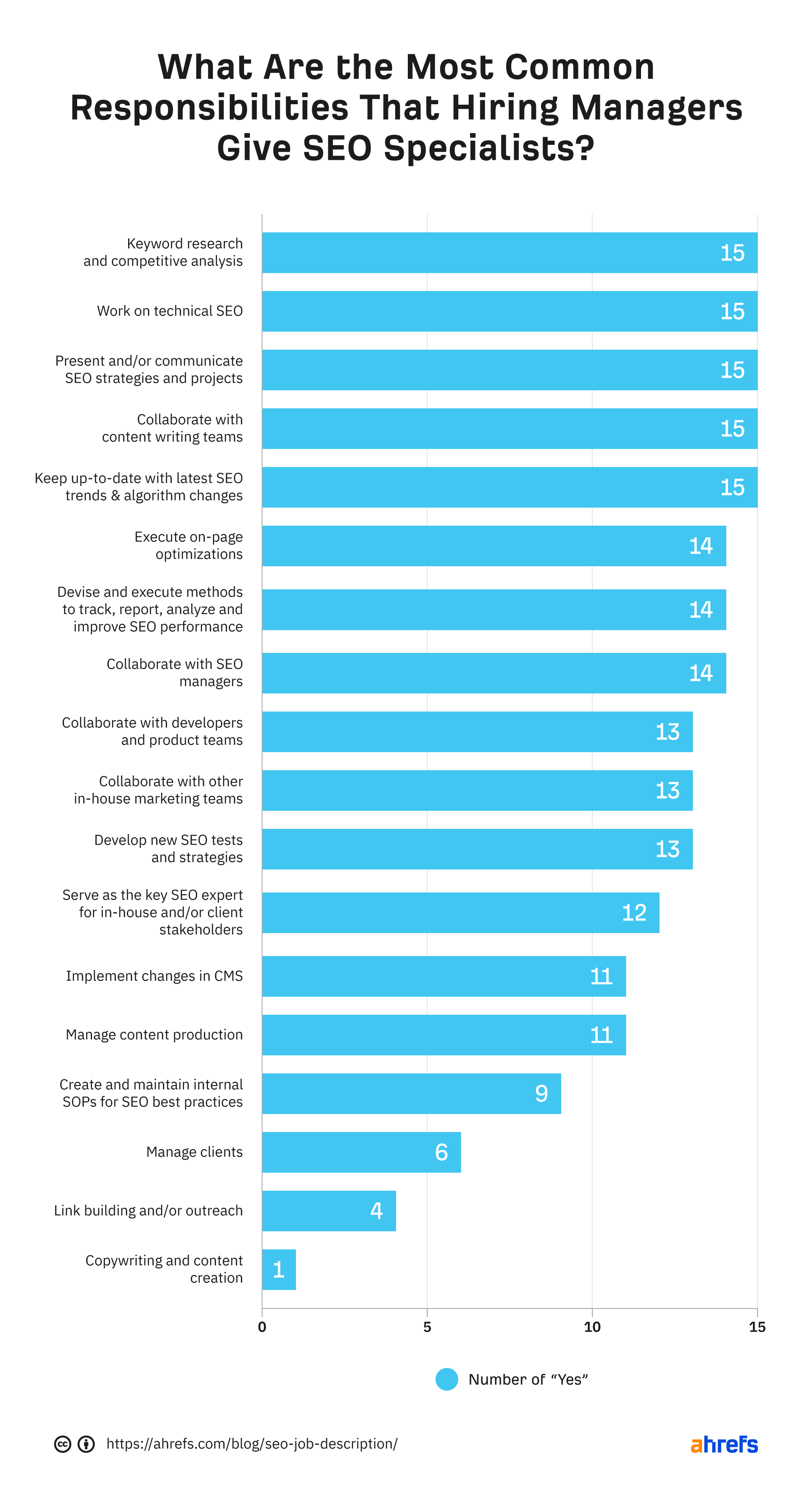
To no one’s surprise, standard SEO duties like keyword research, on-page SEO and technical SEO are part of the expected day-to-day responsibilities. So are other key tasks like collaborating with other teams (especially content teams), reporting, presenting SEO strategies and recommendations to internal/external stakeholders, and developing new SEO tests.
Keeping up-to-date with the latest industry news and trends is also an expected part of the job. However, SEO specialists are not expected to create content and build links.
Of course, we didn’t presume to know everything so we added a question:
Are there other roles and responsibilities you’d like to add that aren’t on this list?
While a couple of people gave more specific examples of responsibilities, I thought this answer from Jessica Levenson was worth highlighting:
Honestly, it’s a skillset. I want someone that is curious. They don’t have to have all the skills, they have to be willing to learn and be perpetually curious.
Skills and requirements
In this section, we presented the SEO hiring managers with 15 of the most common skills and requirements from SEO Specialist job descriptions. We then asked if these skills were very important, somewhat important or not important to them if they were hiring a ‘SEO Specialist’.
Here are the results.
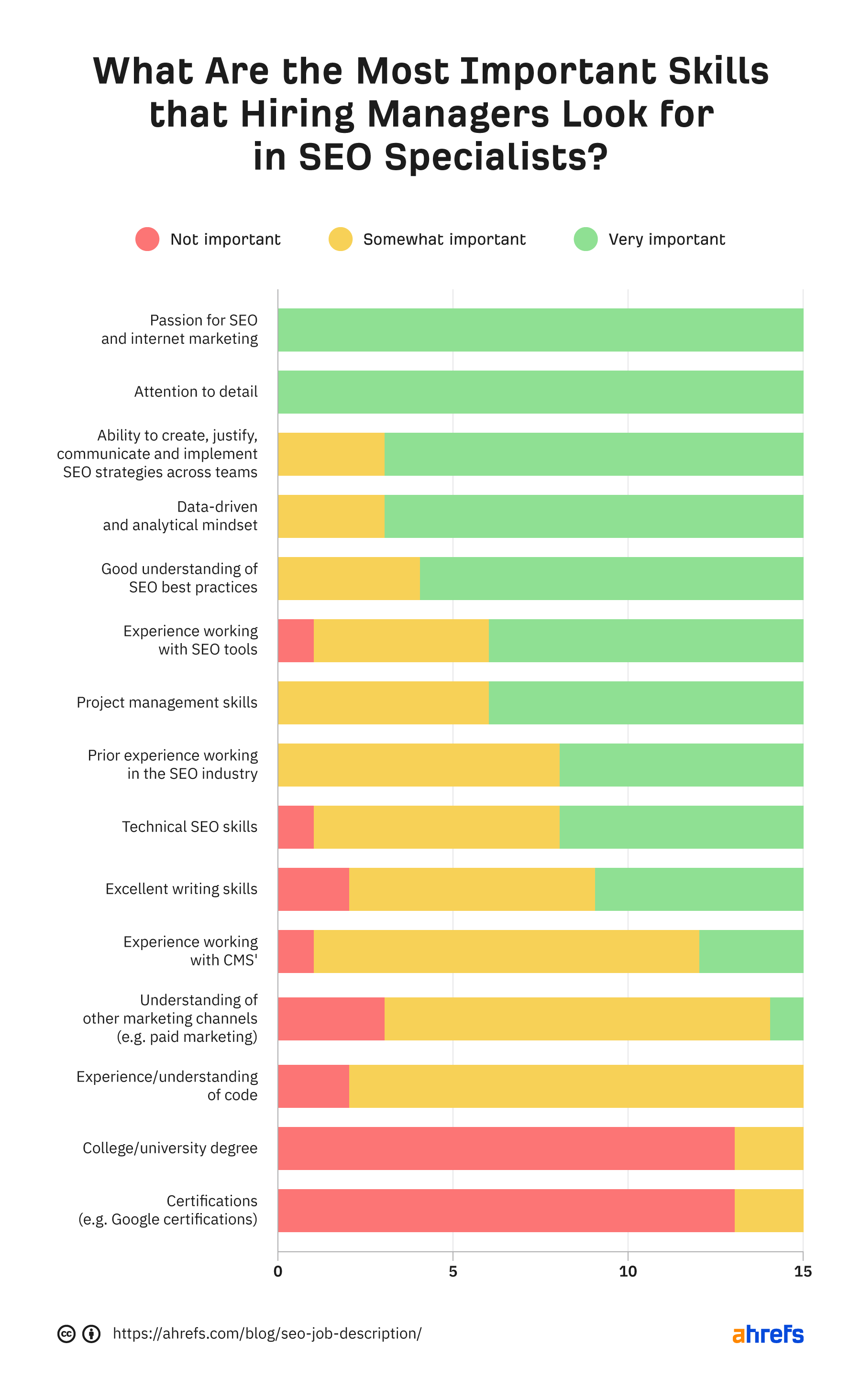
Interestingly, we can see that the skills that most, if not all respondents, agreed on are soft skills (e.g., attention to detail, data-driven mindset, communication) or attitude (e.g., passion for SEO and internet marketing).
As Jessica Levenson added,
Aptitude over experience is always my stance. I can teach anyone SEO provided they are willing and able. On the flip side, I cannot untrain tough personalities or an unwillingness to learn.
Of course, that doesn’t mean that hard skills are not required. The respondents still agreed that a good understanding of SEO best practices, good technical SEO skills and prior experience in the SEO industry is preferred.
How many years experience do hiring managers look for, exactly? Most of them said a minimum of 2+ years.
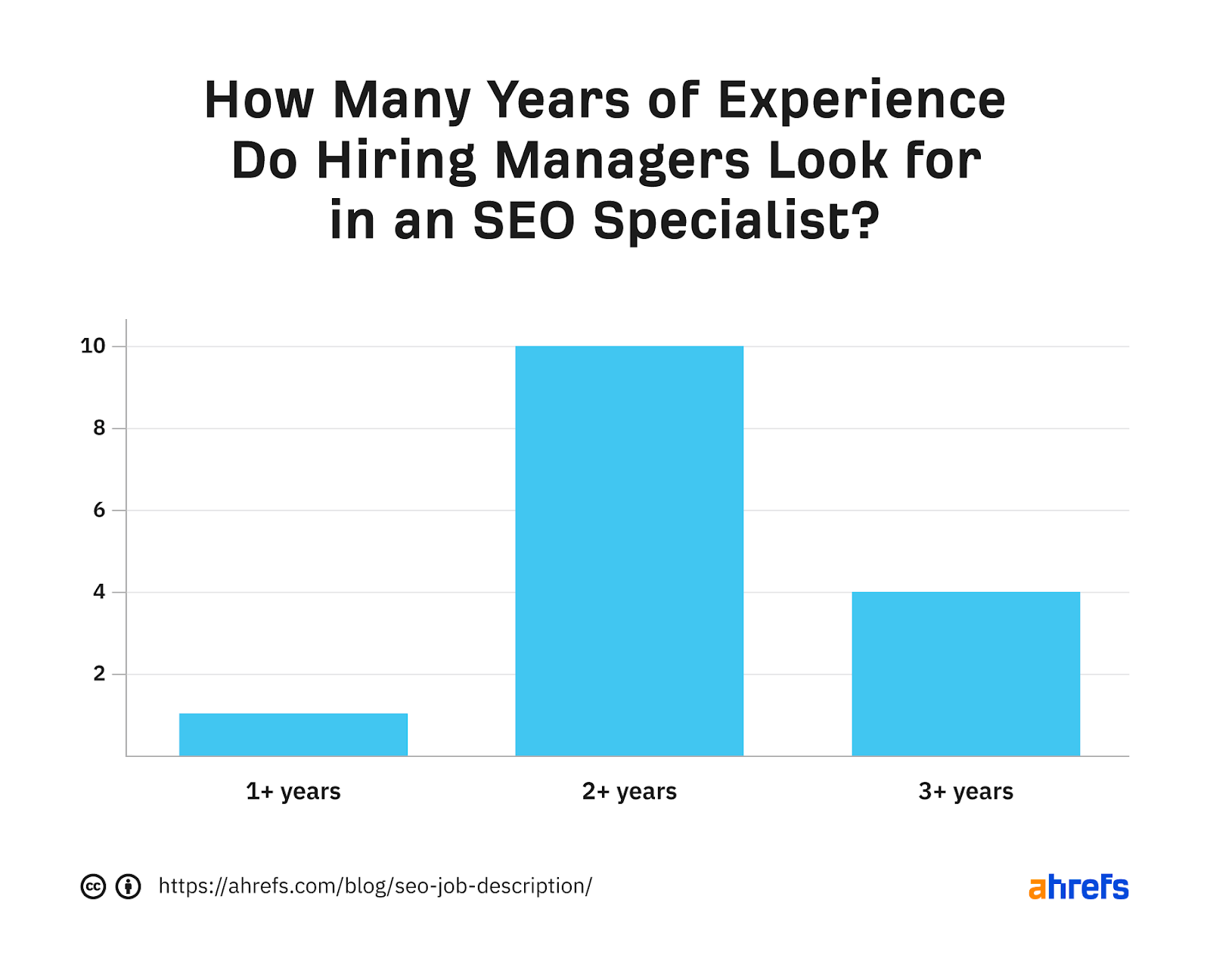
Besides years of experience in the industry, most respondents also preferred that their SEO specialist have some experience with SEO tools.
Here’s what they said after we asked which SEO tools in particular:
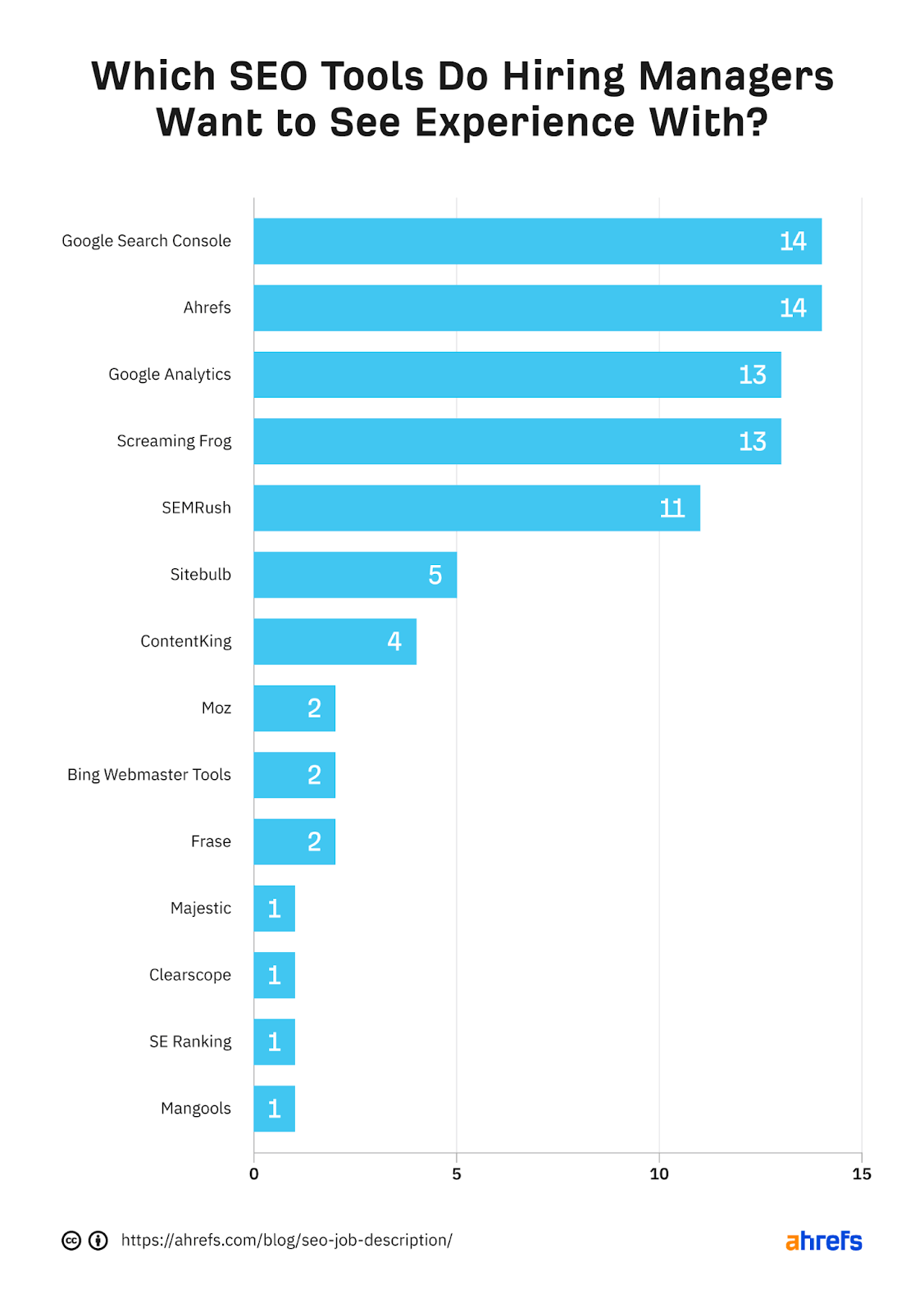
Finally, most of them said “understanding code” was somewhat important. And here are the coding languages they said were important.
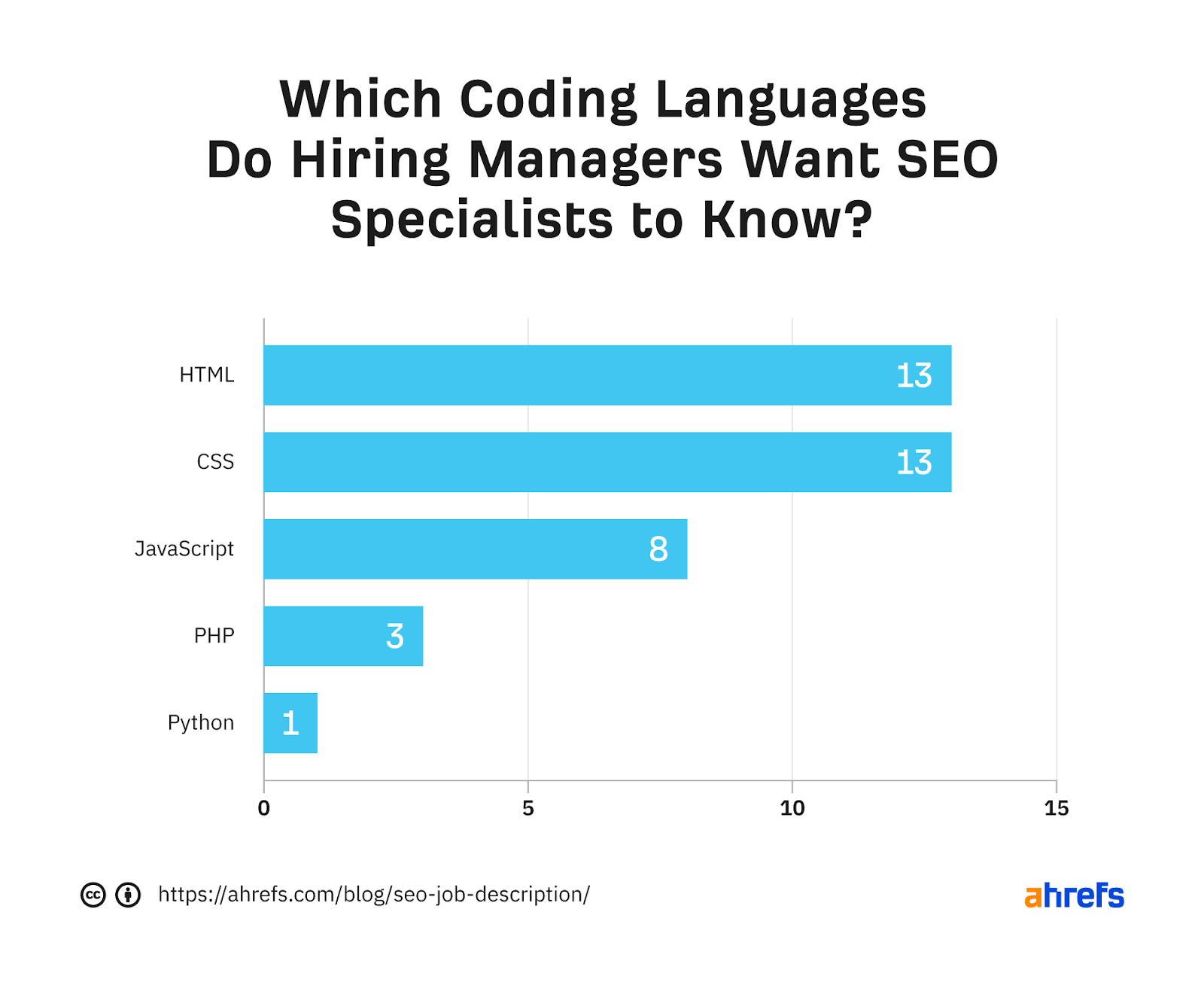
Final thoughts
Technical skills are important. But as most of the respondents highlighted, attitude is even more crucial. If you eventually find a candidate that is coachable and has great teamwork, but lacks certain hard skills, don’t be afraid to take a chance on them.
Marketing skills can always be taught to the right person.
If you’re reading this as a potential employee in the SEO industry, don’t be disheartened. Almost all of them agreed that a college degree and online certifications are not necessary at all. That is in line with the experiences of most of us here at Ahrefs too—a majority of the marketing team hold no qualifications in marketing.
Instead, focus on cultivating the right attitude. Here’s what you should strive to be good at, according to Saijo George:
- Ability to learn and unlearn things quickly;
- Inquisitive mind;
- Try and figure out a problem, but if you can’t, you should be able to ask for help;
- Willing to share your knowledge and expertise with the broader team;
- Above all, be a team player. None of the skills matter if you’re not a team player, as most of the skills can be taught.
Whether through building your own website or an internship, with the correct attitude and some experience, you too have a shot at an SEO specialist job.
Finally, I’d like to thank these folks for helping out:
- Jason Acidre — Co-founder, Avaris;
- Viola Eva — Founder, Flow SEO;
- Suganthan Mohanadasan — Co-founder & Technical SEO Lead, Snippet Digital
- Ian Ong — Co-founder & CEO, Roots Digital Media
- Aleksandrs Buraks — Head of Growth, DiscoverCars
- Amanda Thomas — Managing Partner, Konstruct Digital
- Lily Ray — Senior Director of SEO and Head of Organic Research, Amsive Digital
- Saijo George — SEO Director, Supple
- Michael King — Founder, iPullRank
- Jason Mun — Chief Search Officer, Overdose Digital
- Cori Graft — Associate Director, SEO, Seer Interactive
- Fabrizio Ballarini — Organic Growth, Wise
- Jason Hennessey — CEO, Hennessey Digital
- Jessica Levenson — Head of Digital Strategy & SEO, Oracle NetSuite
- Aundraya Ruse — VP, SEO, Siege Media
Any questions or comments? Let me know on Twitter.
